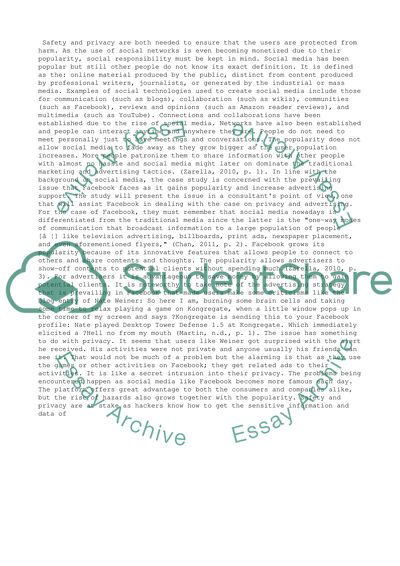Cite this document
(“Facebook: Beacon and Privacy Case Study Example | Topics and Well Written Essays - 1500 words”, n.d.)
Retrieved from https://studentshare.org/management/1437752-social-responsibility
Retrieved from https://studentshare.org/management/1437752-social-responsibility
(Facebook: Beacon and Privacy Case Study Example | Topics and Well Written Essays - 1500 Words)
https://studentshare.org/management/1437752-social-responsibility.
https://studentshare.org/management/1437752-social-responsibility.
“Facebook: Beacon and Privacy Case Study Example | Topics and Well Written Essays - 1500 Words”, n.d. https://studentshare.org/management/1437752-social-responsibility.


